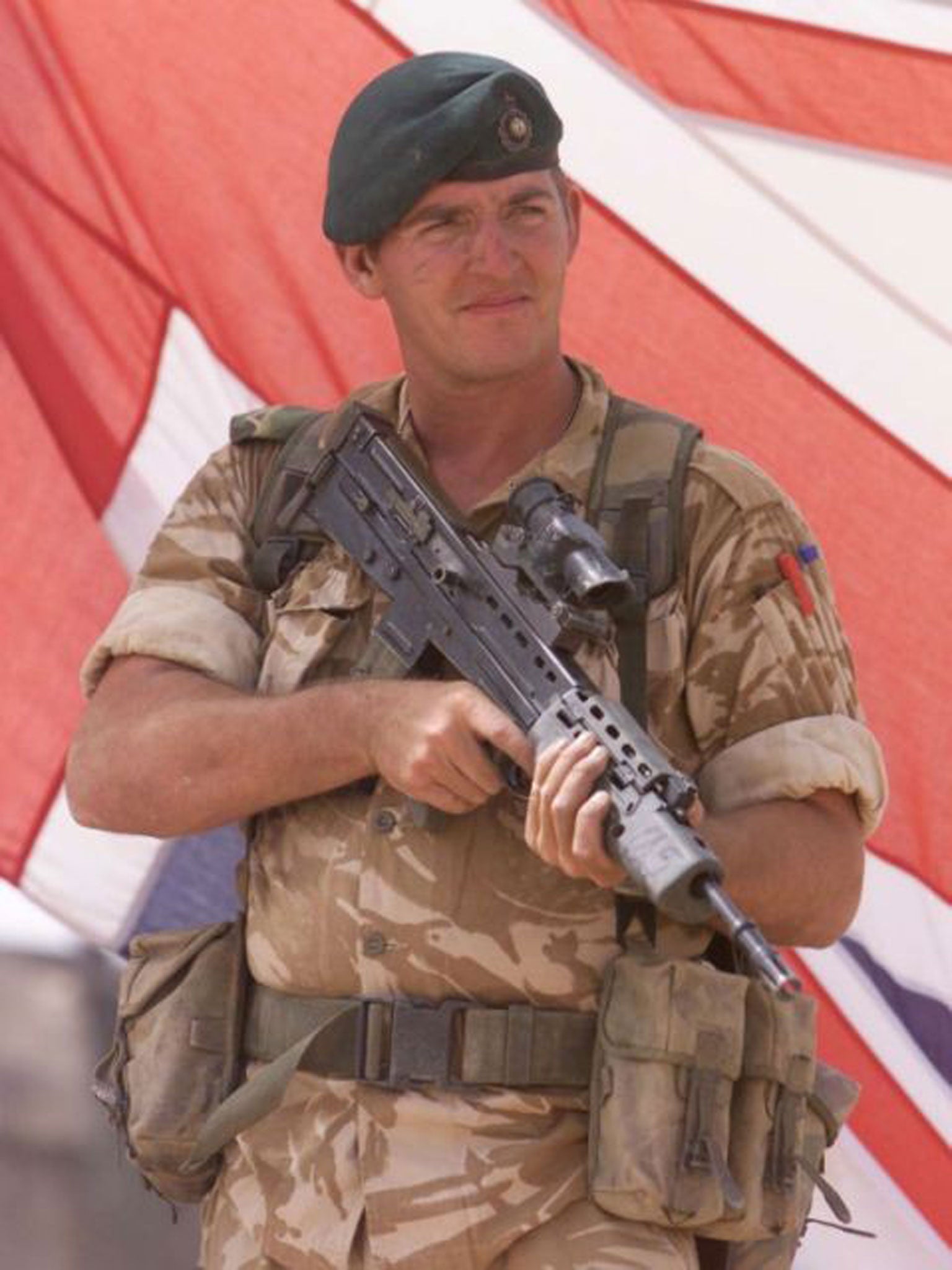Guilty of murdering Afghan insurgent, awaiting sentence and now named: Sgt Alexander Blackman, the Royal Marine murderer
The once anonymous soldier faces life behind bars, but some are arguing for leniency

He wanted his identity to remain secret – to serve his punishment for a “battlefield execution” under the protective legal alias of “Marine A”. On Friday, Sergeant Alexander Blackman will be sentenced for the murder of an injured Afghan prisoner, with his real name now forever linked to one of the most brutal stories to emerge from Britain’s Asian conflicts.
The latest episode in this grim tale – which began two years ago in a corner of a Helmand field, when Blackman shot the Taliban fighter dead with a bullet into his chest – had seen the sergeant’s legal team ask for the continuation of an anonymity order, to protect him and his family from possible revenge attacks by Muslim extremists.
The Court of Appeal rejected the argument yesterday. The judges also ruled that a number of still photographs from a video which showed the killing should be released – though not the film itself, despite it having been viewed by members of the public who had attended the court martial in Bulford, Wiltshire. The Ministry of Defence successfully claimed that its wider dissemination would hand a propaganda tool to jihadists.
In the footage, taken during a patrol by the helmet camera of another Marine, Blackman, of J Company 42 Commando, is seen carrying out the killing. Firing his 9mm pistol at point-blank range at the Afghan covered in blood from an Apache helicopter strike, he is heard to say: “There you are, shuffle off this mortal coil ... it’s nothing you wouldn’t have done to us.” Turning to the others he added: “Obviously this don’t go anywhere fellas, I’ve just broken the Geneva Convention.” He later said he felt ashamed, claiming he thought the fighter was dead, and blaming “a stupid lack of self-control and lapse in judgment”.
The case of Blackman, who today faces a life sentence and who was the first member of the military to be charged with murder in this Afghan war, has divided opinion. Some have demanded exemplary punishment for the Royal Marine, who served for 15 years.
But others have said allowance must be made for members of the military, such as this 39-year-old veteran of “Blair’s Wars”, who were sent to fight for their country and who suffered traumatic experiences.
The differences have also surfaced within the military. The Marines have declared they will stand by Blackman and his family.
While deploring the killing, former commander Major General Julian Thompson has called for leniency. The head of the Corps, Major General Ed Davis, stated “our mantra of ‘once a Marine always a Marine’ is not conditional”.
Past and present senior army officers have taken a markedly harder line, with Lord Guthrie calling for a severe penalty and the Chief of Defence Staff, General Sir Nick Houghton, insisting “murder is murder” and that pleas for clemency would “erode the moral ascendancy over our enemies”.
The issue of the disclosure of the names of four other Marines who were arrested along with Blackman – two of them acquitted at the court martial which convicted him – will be decided after further legal proceedings.
However, the decision to lift the anonymity order on Blackman, from Taunton, Somerset, has caused deep concern among some service personnel. They pointed out that it came against the backdrop of the alleged murder of a soldier, Drummer Lee Rigby, on a London street. There have also been official reports that civilian prisons, in one of which the Marine will serve his term, have seen a rise in the influence of Islamist inmates.
A former officer in 42 Commando, who had served alongside the sergeant, said: “There was an expectation that this was going to happen, a sense of resignation. No one is condoning what he did, but there is going to be an ongoing threat on him. What are they going to do, keep him in solitary confinement to stop attacks?”
While service personnel convicted of murder are not automatically kicked out, it seems Blackman’s career as a Marine is over. He had won promotion to lance corporal soon after joining and first experienced extensive combat following the invasion of Iraq, as British forces came up against fierce resistance in the Al-Faw peninsula. His colleagues recalled constant skirmishes on the road to Basra; on one occasion a rocket-propelled grenade bounced off the armoured car in which he was travelling.
Blackman received a highly favourable end-of-tour report and was recommended for promotion. He undertook two more tours of Iraq and more in Afghanistan. It was during his final deployment, with 3 Commando Brigade, that he carried out the killing which landed him in the dock.
The brigade suffered many losses on the tour, with seven killed and 40 wounded, and the court martial heard that the Taliban had hung body parts of members of the British military from trees as “trophies”. But as the tour neared its end in the autumn, the security situation was calming down in most areas under the brigade’s supervision.
Indeed, the sergeant made a considerable effort to build up relations with the local community, attending shuras – village meetings. But then came the death of the prisoner: cold-blooded murder, according to the prosecution, or, say his comrades, the snapping of a man who had spent too long in a world of violence and strife.
